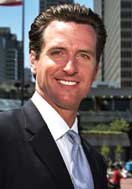Gap Adventures founder Bruce Poon Tip will share his intriguing and visionary insights on ecotourism and sustainability trends when he takes to the stage at the Ecotourism and Sustainable Tourism Conference 2010 (ESTC), in Portland, Oregon, between September 8 and 10.
The conference – co-sponsored by Gap Adventures and the non-profit Planeterra Foundation – is North America’s largest and only conference focusing on sustainability in the tourism industry and will assemble more than 500 business leaders, tourism professionals and community stakeholders to discuss practical ideas and solutions to sustainability challenges facing the sector today. The conference’s ultimate goal: reinforcing the role of tourism in building a more sustainable future for the travel industry.
“We love changing people’s lives through travel and I believe ESTC is a perfect forum to help us advance that goal,” Poon Tip, the conference’s keynote speaker, said. “We’ve proven time and again through initiatives like our voluntourism projects that sustainability and travel needn’t be mutually exclusive. Smart travel that respects local ecosystems, economies and communities not only provides a more exciting experience for our travellers, it’s simply the right thing to do.”
For the first time, ESTC will also be joining forces with the Planeterra Foundation to provide opportunities for conference delegates to roll up their sleeves for the local community. Delegates will have a chance to volunteer at Portland-area landmarks such as the Tualatin National Wildlife Refuge and the Columbia Springs Environmental Education Center, in an effort to highlight the increasing importance and relevance of voluntourism.
“These practical sessions in the field will give delegates an opportunity to participate in a hands-on voluntourism experience and gain an understanding of how giving back to the people and places they visit provides a richer traveller experience.” said Planeterra director Richard G. Edwards.
_________________
QUESTPOINT GOES MOBILE – Beta
Just log in from your iPhone, Blackberry or mobile device to get the latest stories, audio and video.
www.QuestPointSolarSolutions.com
_________
Sustainable travel in effect
____________
The Streets of San Francisco Now
What is Sunday Streets?
Sunday Streets originated in Bogota, Columbia as a day to promote free, health and community oriented events. 30 years after the first program, the concept has spread around the world from Tokyo, Japan to Kiev, Ukraine. Now, it is back in San Francisco!
Letter from the Mayor
________________________________
No more BPs: we must turn our deserts into solar power
The Deepwater Horizon disaster should make us look to the sun, and start a revolution
in how we meet our energy need
Why hasn’t the Deepwater Horizon spill, one of the worst ecological disasters in US history, led to a storming of the Bastille of Big Oil? Why aren’t the most urgent problems of our time – environmental crises and climate change – being confronted with the same energy, idealism and optimism as past tragedies of poverty, tyranny and war? The current state of the oil industry is reminiscent of the ancien regime on the eve of the revolution.
The Gulf of Mexico disaster has many faces. BP’s incompetence is one. But there is also the failure of legislative oversight. What until recently was praised as an economic stimulus policy is now being criticised as “collusion with scoundrels”. The BP boss, Tony Hayward, dons sackcloth and ashes and speaks of an “unprecedented series of mishaps”. At a hearing in the US House of Representatives, a Democrat congressman confronted him with the list of BP accidents and revealed another truth: there are still hundreds, indeed thousands of oil platforms in this region alone, but also throughout the world, for which the other oil majors are responsible. To beat up on BP alone is shabby. Deepwater Horizon is the symbol of the demise of a global experiment: a model of progress and development based on exploiting fossil fuels.
No one can claim they didn’t see it coming. For two centuries machines and engines have been driven by combustion and steam. Nonetheless, a generation has grown up knowing that the fossil fuel industry is burning up its own foundations. More than a century ago, Max Weber foresaw the end of oil-based capitalism when he spoke of a time when “the last hundredweight of fossil fuel is burnt up”. Yet why should a world that every day receives many times its energy needs from the sun, a free and inexhaustible source of energy, look on impassively as clouds of oil spew into the deep sea? Right now, we need the celebrated innovative power of capital and the utopian enthusiasm of engineers. “Swords into ploughshares” was the motto of the peace movement. “Deserts into solar power” should be our slogan now.
As the oil gushes forth, the truth is coming to light. “We underestimated the complications involved in drilling for oil at a depth of 1,500 metres,” confesses Hayward. Nobody possesses the necessary safety technology to prevent or respond to such a scenario. Engineers have bored to ever greater depths on the assumption that the risks could be controlled. The depressing truth is that the “residual risk” of deep-sea drilling rests on ignorance. BP estimated that, in the event the safety technology should fail, it would take two to four years for the oil to discharge completely into the sea.
Faced with this long-term catastrophe, Barack Obama has declared “war” on the dark enemy from the deep. But military thinking is no help, because the greatest dangers do not come from enemy states, but from the side-effects of economic, scientific and political decisions. What is the commander-in-chief supposed to do? Send out his fleet of submarines to torpedo the oil leak? Launch a military strike against the management of BP and its sponsors? In the war against terror, George W Bush held Afghanistan and Iraq responsible for al-Qaida. Should Obama follow his example in this Gulf war by making Britain, as BP’s assumed country of origin, responsible for the catastrophic attack on the American coast? Obama stresses the adjective “British” when speaking of the energy company, as though this were 1814 and British troops were again besieging Washington DC.
BP itself has long since been engulfed by globalisation. British Petroleum is not British. In 1998 the company merged with US oil giant Amoco and took the opportunity to abandon the adjective “British” and replace it with “Beyond”. BP, we were invited to think, was the beginning of the future without oil. And the globalised BP cannot be pinned down: it is jointly owned by Americans, its drilling rig was built by Koreans, and it pays corporation tax in Bern. Yet just as Chernobyl was dismissed as a failure of a “communist” reactor, Deepwater Horizon is now being blamed on the country with which the US used to enjoy a “special relationship”. Obama needs, in his own words, “an ass to kick”.
Postwar prosperity in the west laid the foundation for environmental awareness. Now environmental awareness must provide the basis for prosperity in developing countries. These countries will adopt sustainable policies to the extent that the affluent countries invest in their development and adopt a new vision of prosperity and growth. China, India, Brazil and African countries will not agree to any approach that tries to limit their efforts to achieve economic parity – and rightly so.
But does the future lie with a global environmental policy based on carbon trading, which amounts to the global sale of indulgences for CO2 sins? Or will we have the courage to invent and realise a new age of solar energy in which prosperity is not an environmental sin, and when everything from cows to electric toothbrushes is blamed for contributing to CO2 emissions? “It is time to introduce clean forms of energy,” Obama has said. If he can ring in an era that is truly Beyond Petroleum, Big Oil’s Bastille will be doomed.
___________________________
OBAMA ANNOUNCES $2 Billion Solar Award
Listen Here
_______________________
Intersolar North America
Taking place from July 13-15 in San Francisco’s Moscone Center West Hall, promotes the development of business opportunities throughout the U.S. solar industry. More than 550 U.S.-based and international exhibitors and 20,000 trade visitors are expected.
Facing Tough PV Manufacturing Challenges: Intersolar North America 2010 to Host Inaugural PV Group North American Fab Managers Forum
Leading Solar Cell-Makers Will Convene at July Event in San Francisco
SEMI PV Group today announced that the first annual North American Fab Managers Forum will be held at Intersolar North America 2010 in San Francisco, California on July 12, 2010. Hosted by SEMI PV Group, the Fab Managers Forum is focused on addressing shared supply chain challenges and improving customer-supplier relations across the photovoltaic supply chain.
Lobbying for Solar
NEW YORK — Applied Materials Inc. spent $320,000 lobbying the federal government in the first quarter of the year on energy legislation and other issues.
That’s more than double the $130,000 the company spent in the same quarter a year ago, according to congressional disclosure forms, but down from $470,000 spent in the quarter before.
Applied Materials provides technology used by solar panel and semiconductor manufacturers. It lobbied the U.S. House, Senate and various federal agencies on the American Clean Energy & Security Act, which would establish a cap-and-trade system to set limits on greenhouse gas emissions.
The company also listed a House bill that would direct the Energy Department to establish a solar energy research program.
______________
Visit these sections below
SUBSCRIBE TO UPDATES HERE
EVENTS –
UPDATED
INSIGHT –
N THE MIX – webcasts
 TV
TV
VIDEO -





